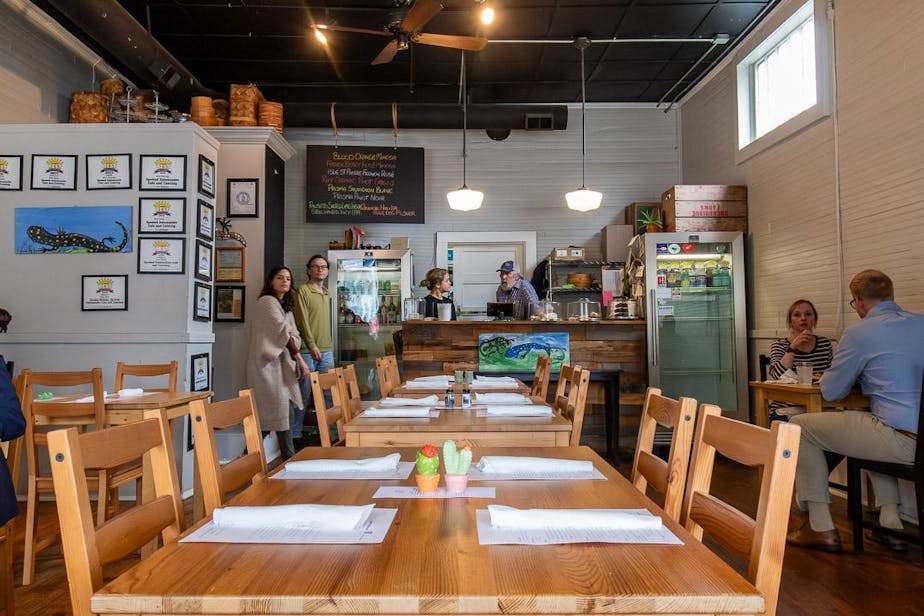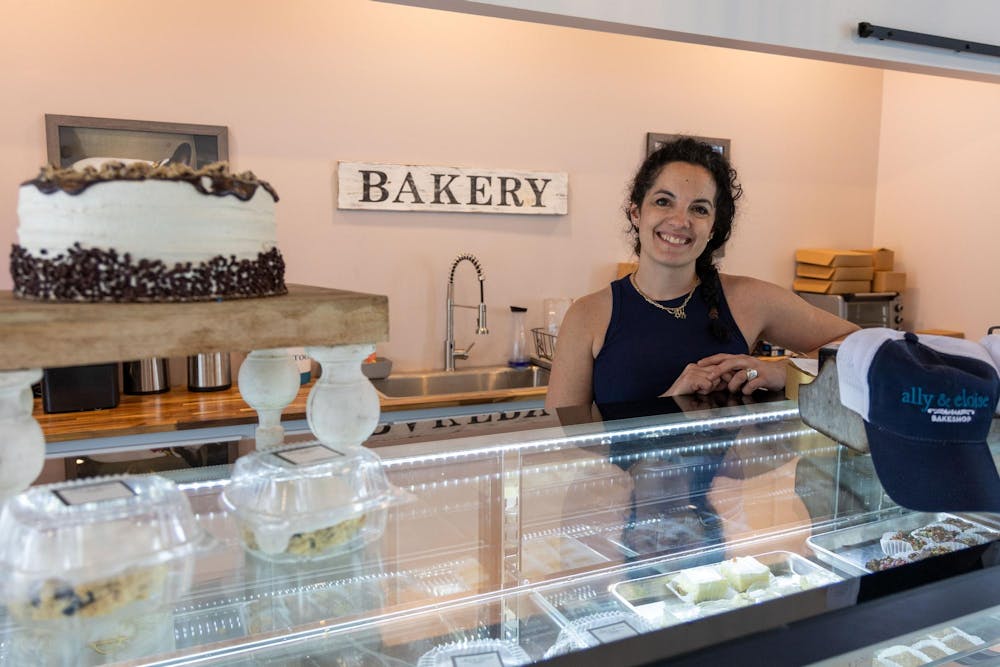Last year was considered by many to be the summer of women, with Taylor Swift’s Eras Tour, Greta Gerwig’s "Barbie" and Beyoncé’s Renaissance Tour empowering women all over the world.
But women excelling in their chosen field is nothing new. Small businesses across Columbia are being run by women, who are continuing to build their brand despite adversity from customers or peers they have worked with.
Facing pushback
Angela Sellers has been operating Fit Columbia for 12 years.
She originally created her business so that anyone, no matter their income, would be able to attend a session with a personal trainer. This has attracted both younger and older audiences to her business, she said.
"Every single person should have an opportunity to be coached," Sellers said. "If you don't know what you're doing, having somebody say, 'You're doing a good job, let's tweak this,' it's huge. It gives you direction. It gives you confidence."
Even though she's been accepted among her community as a business owner, Sellers said she has dealt with landlords or other business owners who don't treat her equally to her male counterparts.
One landlord, she said, only addressed her contractor about building safety, rather than her — the person who pays rent. Sellers said that if she didn't have the confidence she does now, she didn't think she would be able to speak up — something she thinks women continue to struggle with today.
"I finally said, 'I am the one doing this, please talk to me,'" Sellers said. "And you know, he laughed and made a joke and told me I was cute. I am not cute. I do fucking good work. And I've worked hard and my credentials back me."
The Spotted Salamander, a catering business and cafe with two locations in downtown Columbia, is owned by chef Jessica Shillato.

Servers and customers talk amongst themselves inside Spotted Salamander on Jan. 25, 2024. The restaurant serves local cuisine, getting its ingredients fresh from South Carolina farmers.
Shillato said that being a female-owned business has attracted customers to her restaurant because they want to support a female-owned establishment. But she's also faced pushback being a woman in the food industry, she said.
“I've had suppliers and salespeople refuse to work for me because I'm a woman,” Shillato said. “I’ve had men tell me, 'Well, women can't be chefs.’ It’s gotten better, but it's still like, ‘You're just a girl’ or ‘You won that because you're just a girl' and 'You really didn't deserve your awards.’”
Other female business owners feel that they would be more accepted if they were represented more in state politics.
Khristina Lawler, the owner of Shvaas Spa in downtown Columbia, said seeing laws being created without representation for female business owners has always been a struggle for her.
But most people, regardless of gender, never take the time to consider the cons when creating their own business, she said. Over the years, she said she has had to figure out how to navigate family schedules and work responsibilities.
"When we think of the American Dream, and we think of an entrepreneur and opening a business, we think of all the positive things that come with that," Lawler said. "We never think about what the negative is that comes with that. And the negative of that is it will take away time."
Some business owners, such as Aleka Selig — the owner of Ally & Eloise Bakeshop — haven't faced any challenges that directly deal with them being a woman who owns a business.
It's something she doesn't really think about when working, Selig said.
"I think people get excited when women run businesses. It's definitely not a negative thing," Selig said. "I don't think about it a lot. I just run my business the way I run my business."
Finding support
Despite attitudes of specific people in the industry, Sellers has always felt supported by locals in the community, she said.
Fundraisers, coverage in local news outlets and dedicated customers have helped her grow her business. For anyone attending USC, they should consider staying and opening a small business, Sellers said.
“Columbia is very receptive," Sellers said. "It's growing. It's becoming more and more progressive. Columbia has supported me in ways that I can't even demonstrate."
Staying in touch with the community is an important part of how Ashley Lindler, the owner of A Little Happy gift shop on Saluda Avenue, runs her business.
Lindler began her business as a passion project after previously working in sales. In her role, she was able build a customer base of mothers and daughters and grew to know each one, she said.
She noticed that there was not a significant market for tween girls like her two daughters at the time and opened up the shop in Five Points in March 2020.
Lindler said that her perspective as a woman and mother has helped her connect with the young employees at the store. Her relationship with her daughters has also allowed her to keep up with current trends among her teenage customers.
“When I have interns come into the store, I'm really able to relate to them in a way that I know what they're going through. I'm able to communicate,” Lindler said. “I'm in a place where we can establish a relationship like that. I think it's really cool. So sometimes I end up being a second mom to the girls who come through the shop to work, which is fun.
Interacting with the Columbia community is one of the most rewarding parts of running a business, Selig said.
“I get to meet a lot of really neat people and interact in the community and (with) our customers,” Selig said. “It's really sweet, and the stories are amazing. And people are generally really awesome.”
Keeping their head up
The adversity Shillato has faced in the restaurant industry has motivated and empowered her to continue proving herself, she said.
Likewise, Lawler didn't give up when she first started her business. She instead created a vision board that would help remind her of the dream she was chasing.
And for Sellers, there will always be resources or other people to turn to whenever an owner's new business is struggling to grow.
But no matter what, women should remain confident in who they are as business owners and should always stick with the facts over taking discouraging conversations personally, she said.
“Be clear on what you want and don't let that person's response alter you," Sellers said. "How they look at you does not matter.”

